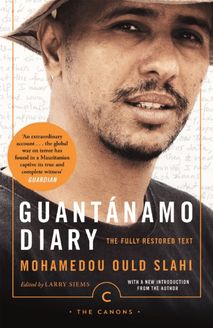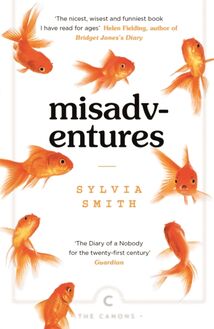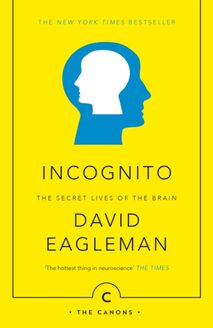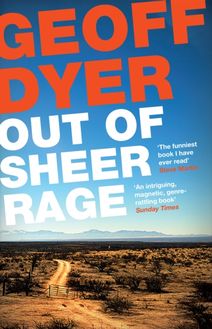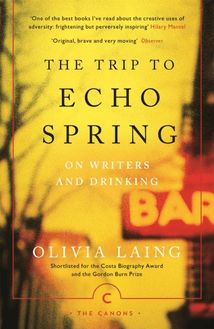-
 Univers
Univers
-
 Ebooks
Ebooks
-
 Livres audio
Livres audio
-
 Presse
Presse
-
 Podcasts
Podcasts
-
 BD
BD
-
 Documents
Documents
-
- Cours
- Révisions
- Ressources pédagogiques
- Sciences de l’éducation
- Manuels scolaires
- Langues
- Travaux de classe
- Annales de BEP
- Etudes supérieures
- Maternelle et primaire
- Fiches de lecture
- Orientation scolaire
- Méthodologie
- Corrigés de devoir
- Annales d’examens et concours
- Annales du bac
- Annales du brevet
- Rapports de stage
La lecture à portée de main
Vous pourrez modifier la taille du texte de cet ouvrage
Découvre YouScribe en t'inscrivant gratuitement
Je m'inscrisDécouvre YouScribe en t'inscrivant gratuitement
Je m'inscrisEn savoir plus
Vous pourrez modifier la taille du texte de cet ouvrage
En savoir plus

Description
Informations
| Publié par | Canongate Books |
| Date de parution | 18 février 2021 |
| Nombre de lectures | 0 |
| EAN13 | 9781838853860 |
| Langue | English |
Informations légales : prix de location à la page 0,0400€. Cette information est donnée uniquement à titre indicatif conformément à la législation en vigueur.
Extrait
THE FALL OF KELVIN WALKER
Born in 1934, Alasdair Gray graduated in design and mural painting from the Glasgow School of Art. Since 1981, when Lanark was published by Canongate, he has authored, designed and illustrated seven novels, several books of short stories, a collection of his stage, radio and TV plays and a book of his visual art, A Life in Pictures . In November 2019, he received a Lifetime Achievement award from the Saltire Society. He died in December 2019, aged eighty-five.
ALSO BY ALASDAIR GRAY
Novels
Lanark
1982, Janine
Something Leather
McGrotty and Ludmilla
Poor Things
A History Maker
Mavis Belfrage
Old Men In Love
Short Story Collections
Unlikely Stories, Mostly
Lean Tales (with James Kelman and Agnes Owens)
Ten Tales Tall & True
The Ends of Our Tethers: 13 Sorry Stories
Every Short Story by Alasdair Gray 1951–2012
Poetry
Old Negatives
Sixteen Occasional Poems
Collected Verse
Hell: Dante’s Divine Trilogy Part One
Purgatory: Dante’s Divine Trilogy Part Two
Paradise: Dante’s Divine Trilogy Part Three
Theatre
Dialogue – A Duet
The Loss of the Golden Silence
Homeward Bound: A Trio for Female Chauvinists
Sam Lang and Miss Watson: A One Act Sexual Comedy In Four Scenes
McGrotty and Ludmilla
Working Legs: A Play for Those Without Them
Goodbye Jimmy
Fleck
A Gray Play Book
Non-Fiction
Why Scots Should Rule Scotland
The Book of Prefaces
How We Should Rule Ourselves
A Life in Pictures
Of Me and Others
Independence
ALASDAIR GRAY
THE FALL OF KELVIN WALKER
FOR MORA, AT LONG LAST, A BOOK BY HER BROTHER WHICH WILL NOT MAKE HER BLUSH.
The Canons edition published in 2021 by Canongate Books
First published in 1985 by Canongate Books Ltd, 14 High Street, Edinburgh EH1 1TE
Distributed in the USA by Publishers Group West and in Canada by Publishers Group Canada
canongate.co.uk
This digital edition first published in 2021 by Canongate Books
Copyright © Alasdair Gray, 1985, 1986
Introduction first published in The Review of Contemporary Fiction , summer 1995, Vol. 15.2.
The right of Alasdair Gray to be identified as the author of this work has been asserted by him in accordance with the Copyright, Designs and Patents Act 1988
British Library Cataloguing-in-Publication Data A catalogue record for this book is available on request from the British Library
ISBN 978 1 83885 385 3 eISBN 978 1 83885 386 0
“In the beginning was the Word, and the Word was with God, and the Word was God.”
from Saint John’s GOSPEL
“My lady, there are few more impressive sights in the world than a Scotsman on the make.”
from Sir James Barrie’s WHAT EVERY WOMAN KNOWS
TABLE OF CONTENTS
Introduction
Chapter 1: The Discovery of London
Chapter 2: A Meal with a Native
Chapter 3: The Base Camp
Chapter 4: The Climb Begins
Chapter 5: Setback
Chapter 6: Holiday
Chapter 7: Taking the Summit
Chapter 8: Securing the Base
Chapter 9: The Conquest of London
Chapter 10: The Spread of Kelvin Walker
Chapter 11: The Fall
Chapter 12: Exodus
Chapter 13: Anticlimax
A CONVERSATION WITH ALASDAIR GRAY
by Mark Axelrod
Mark Axelrod
What was the genesis for Kelvin Walker ? What were the political reasons for writing it?
Alasdair Gray
Kelvin Walker was first written as a television play in 1965 but had more than one origin. The first was a scene I imagined in 1959 or 1960 in which a dour dependable Scot of the technician type (like Jock McLeish) is bullied into sharing his home with – and by – a Bohemian artist with a very attractive girlfriend. The plot was to be the seduction of the girl by the apparently quieter, more ordinary man after a violent quarrel between her and the man she mainly loved. But all I got written was a fragment of the scene where this happened, because I could imagine no interesting social setting.
Around the same time I was accosted – twice in a cafe, once in a hospital waiting room – by strangers who said, “Excuse me, but would you mind if I engaged you in conversation?” and went on to tell something weighing heavily on their minds at the time. Their stories were different but began with the same formal Scottish inquiry. Then I read a literary magazine containing a scene from J.P. Donleavy’s A Fairy Tale of New York : one in which a young man whose only talent is verbal adroitness talks himself into a high position in a New York corporation. And then in 1964 I got a telegram from a friend in the London BBC, telling me to phone him, reversing the charges. I had no telephone then, was living on the social security dole with my wife and our one-year-old son, working at painting except when too depressed to paint, when I would work on Lanark . I phoned the friend, Bob Kitts, who had become a TV documentary director on an arts programme called Monitor . He had persuaded his boss (Huw Wheldon) to let him make a forty-five-minute film about an almost wholly unknown poet and painter – me.
He arranged for me to leave the Sauchiehall Street labour exchange (where I had to sign in punctually once a week), go by taxi to Glasgow Airport, collect my tickets at the B.E.A desk, fly to London, and be met by a glossy Daimler, which drove me at once to the headquarters of BBC television, when Britain only had one TV channel, and that was it. So from being a state-supported pauper, I became simultaneously a Scot on the Make in London who felt himself on the verge of Wealth and Fame. I did not get them: but I suddenly imagined Kelvin Walker with his Nietzsche-inspired conviction that invincible self-confidence, a clear head and a sharp tongue could get him onto the social ladder a few rungs from the top. Bob’s television film did not get me the mural commissions I hoped for but paid me enough money to live by doing what I wanted for twelve months or more, and in that period I wrote the television version of The Fall of Kelvin Walker , which was broadcast by London BBC in 1968 (though bought two years earlier) and published as a novel in 1985: when a Scottish BBC TV producer invited me to lunch and explained that he thought it would make a splendid television play.
As to my political reasons for writing it – I had none at all. The politics of any story I tell are the politics of the country where I live. The prime minister and newspaper owner in Kelvin Walker were as necessary to it as King Arthur and Merlin to a medieval romance. I was told later that many on the BBC thought Kelvin Walker was based on David Frost, but I had never seen Frost. I did not own a TV set in those days.
From The Review of Contemporary Fiction , Summer 1995, Vol. 15.2
1 THE DISCOVERY OF LONDON
One bright fresh summer morning, in a prosperous decade between two disastrous economic depressions, a thin young man disembarked in Victoria Coach Station from one of the buses plying between Scotland and London. He wore a black homburg, a black double-breasted overcoat, a celluloid collar and a tartan tie; his shoes were slightly worn but beautifully polished, and the visible parts of his legs were clad in thick woollen stockings whose tops were hidden by the coat. His lank hair had a side parting and sloped across his brow in the style of Adolf Hitler, and he stood in the warm grey early morning air holding a battered suitcase and looking around with a blank, nearly characterless face while other passengers hurried past to the refreshment room or to waiting friends. Suddenly his expression grew grimly purposeful. He walked to a stationery kiosk and said to the woman behind the counter, “I would like, please, a cheap ball-point pen, a small hard-covered pocket notebook, a street map of London and a guide to your transport system.”
“You can have them, son,” she answered in a Scottish voice. He relaxed and when she had got the articles together he indicated a row of newspapers and asked on a more intimate note, “Which of these advertise good jobs?”
She handed him a paper which he glanced through then carefully refolded and returned, saying, “I’ll be frank with you. I’d like a paper which offers better jobs than these.”
She smiled and said, “What about The Times ?”
He looked through The Times then nodded, paid for his purchases and pocketed all but the map, which he unfolded and brooded over thoughtfully before leaving the station.
No one seeing him guessed that he was gripped by a gigantic excitement and had no idea where he was going. He believed he was “just getting to know the place”. His quick scissoring stride suggested a determined man with no time to waste, his tight mouth and straight stare portrayed a total indifference to surroundings, yet the streets brought continually into the centre of his eye or carried past the corners of it sights which struck and intoxicated: new huge unfamiliar buildings, famous old ones recognized from films and newsphotos, girls and women dressed and decorated with a wealth and wildness and nonchalance he had never seen before in his life. The excitement went to his legs. He had eaten nothing that morning and had hardly slept on the journey down, but the thought of sitting in a restaurant was impossible. Several times he entered a bakery or sweet shop then walked forth from it eating a pie or bar of chocolate. His only other pauses were to look at the map.
Crossing Trafalgar Square for the third time that afternoon he sat suddenly on a bench near a fountain and tried to subdue his excitement by turning it into thoughts. London was wealthy. Other British cities, Glasgow for example (he had seen Glasgow), had been built by money and still contained large amounts of it, but money seemed a slower substance in the north—a powerful substance, certainly, but stolid. Those owning it had not been liberated by it. Their faces were as severe, their mouths as grimly clenched as those without. But here in London—had it happened a year ago or a century or many centuries?—money had accumulated to a point where it had flashed into wealth, and wealth was free, swif
-
 Univers
Univers
-
 Ebooks
Ebooks
-
 Livres audio
Livres audio
-
 Presse
Presse
-
 Podcasts
Podcasts
-
 BD
BD
-
 Documents
Documents
-
Jeunesse
-
Littérature
-
Ressources professionnelles
-
Santé et bien-être
-
Savoirs
-
Education
-
Loisirs et hobbies
-
Art, musique et cinéma
-
Actualité et débat de société
-
Jeunesse
-
Littérature
-
Ressources professionnelles
-
Santé et bien-être
-
Savoirs
-
Education
-
Loisirs et hobbies
-
Art, musique et cinéma
-
Actualité et débat de société
-
Actualités
-
Lifestyle
-
Presse jeunesse
-
Presse professionnelle
-
Pratique
-
Presse sportive
-
Presse internationale
-
Culture & Médias
-
Action et Aventures
-
Science-fiction et Fantasy
-
Société
-
Jeunesse
-
Littérature
-
Ressources professionnelles
-
Santé et bien-être
-
Savoirs
-
Education
-
Loisirs et hobbies
-
Art, musique et cinéma
-
Actualité et débat de société
- Cours
- Révisions
- Ressources pédagogiques
- Sciences de l’éducation
- Manuels scolaires
- Langues
- Travaux de classe
- Annales de BEP
- Etudes supérieures
- Maternelle et primaire
- Fiches de lecture
- Orientation scolaire
- Méthodologie
- Corrigés de devoir
- Annales d’examens et concours
- Annales du bac
- Annales du brevet
- Rapports de stage
